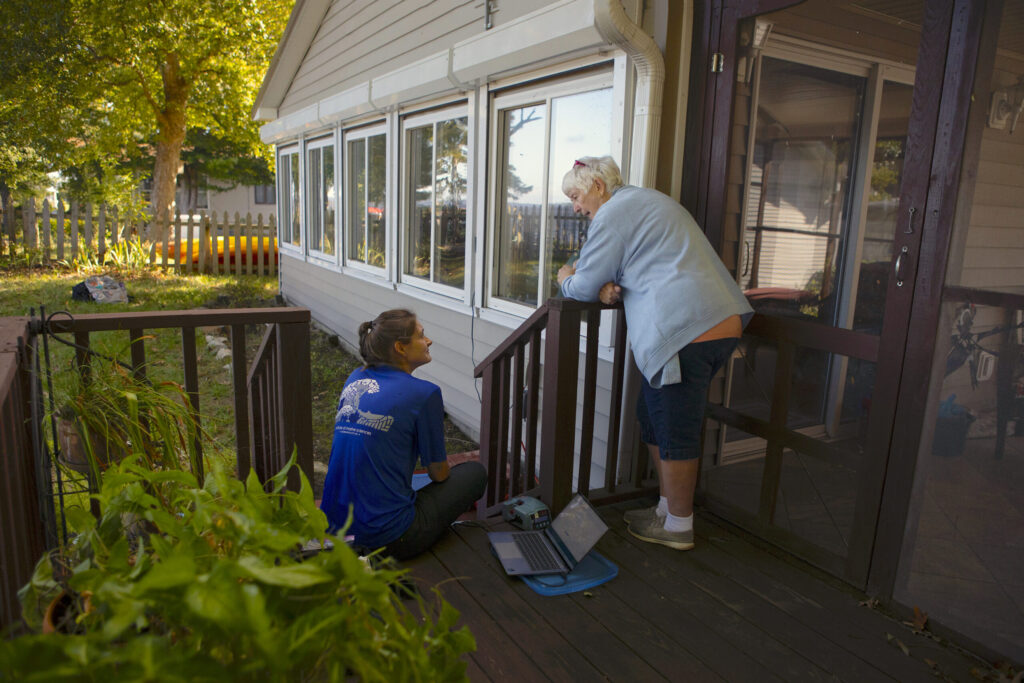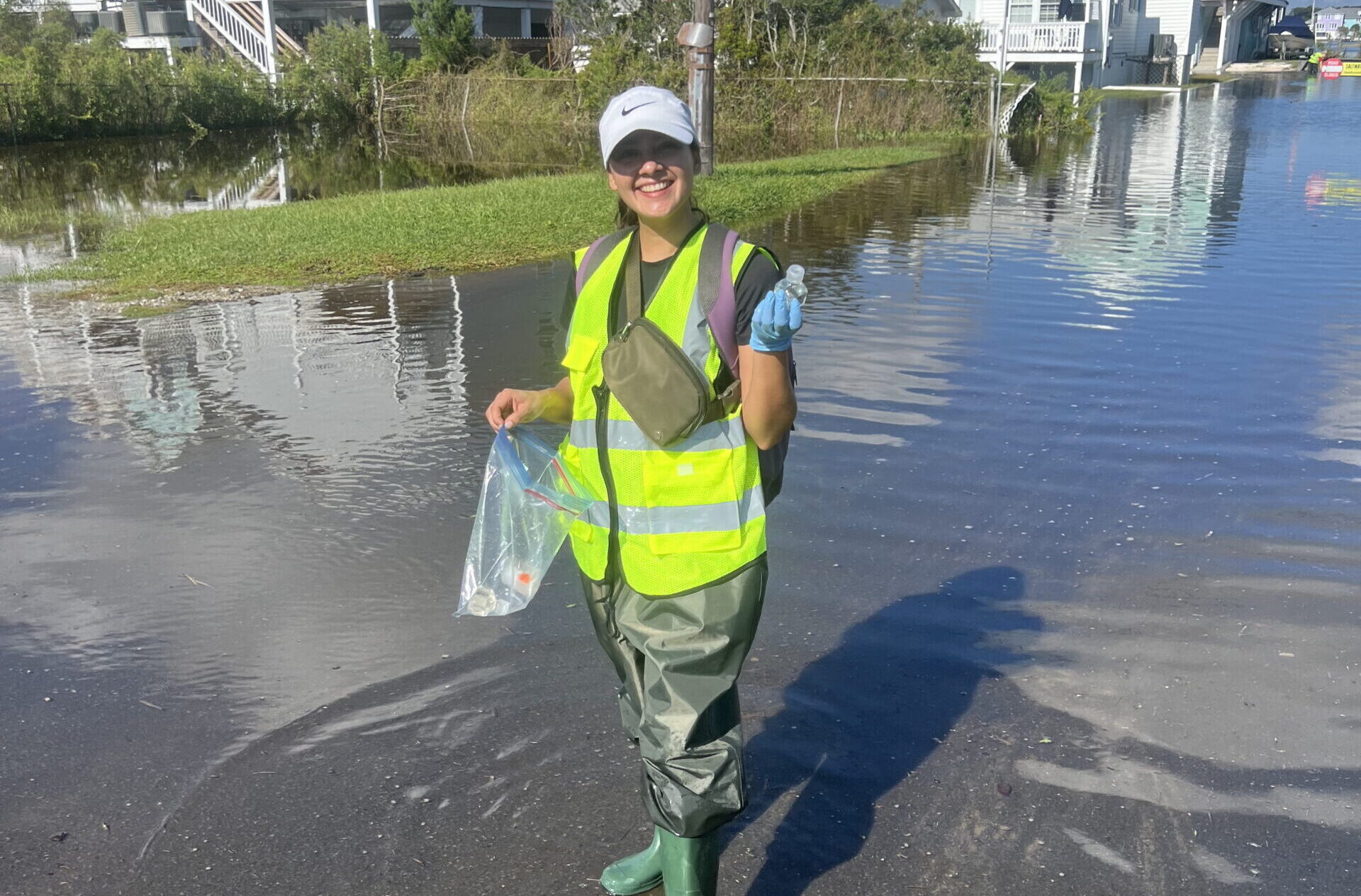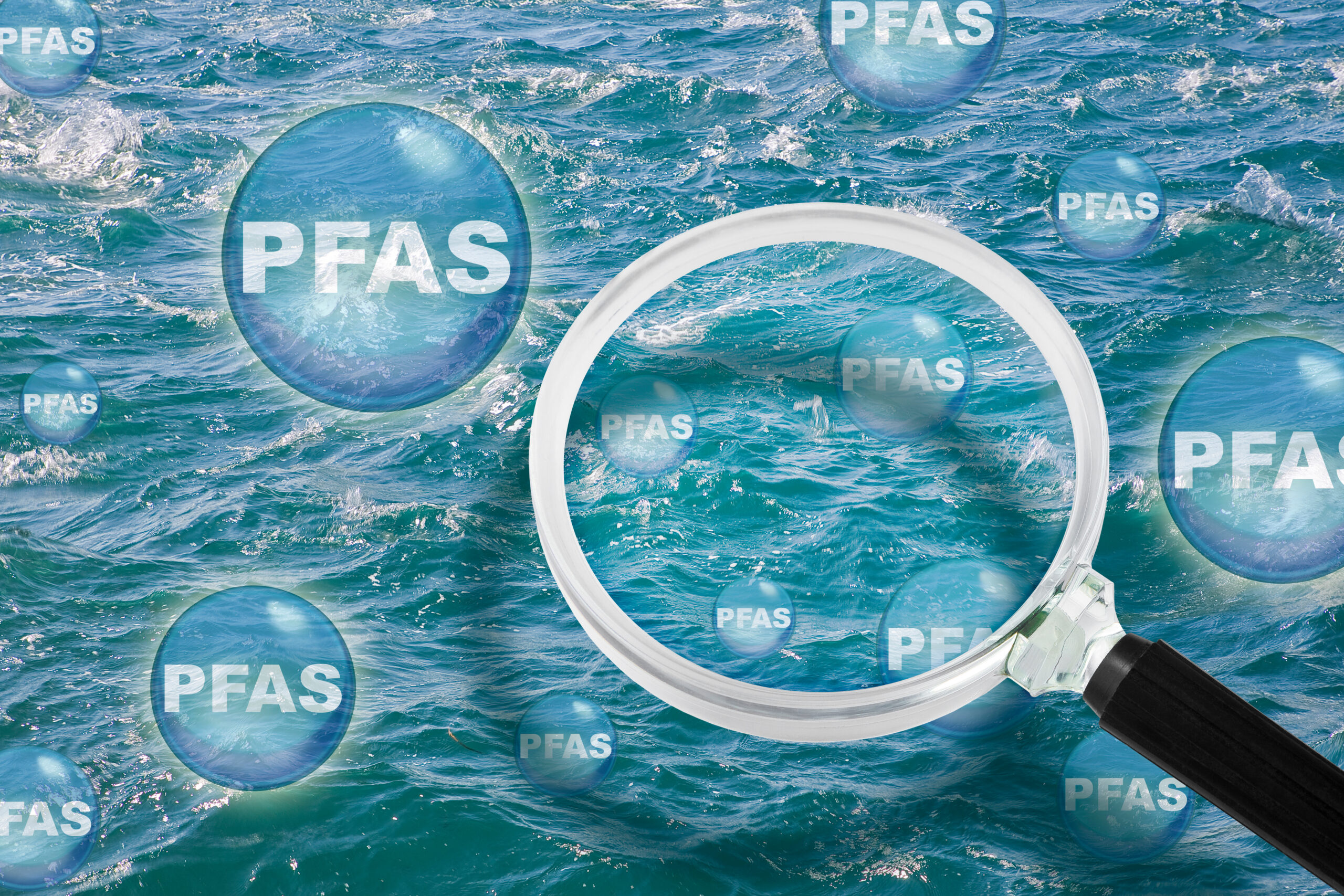
Faculty Research Projects
NC WRRI funds faculty researchers across the state to address a broad range of water resources topics.
Explore Funded Faculty Projects
The table below contains a list of funded faculty projects dating back to 2020. Use the search bar to search particular topics, researchers, or key words. If a final report is available, it has been provided as a hyperlink within the title column. For a list of projects funded prior to 2020, contact John Fear (jmfear@ncsu.edu). Historically funded research and final reports from WRRI can also be found in the NC State research repository.
| Project Title | Lead Researcher | Co-PI(s) | Year started | In the News |
|---|---|---|---|---|
| Development of improved analytical methods for the determination of total organic fluorine in wastewater and biosolids | Pingping Meng, East Carolina University | 2025 | ||
| Improve the total organic fluorine analysis by adding oxidative pretreatment | Mei Sun, UNC Charlotte | 2025 | ||
| Monitoring of Urban Pervious Surfaces and Investigating the Role of Large Storms in Urban Stormwater Management | Bill Hunt, NC State University | Vini Taguchi and Amber Ellis | 2024 | |
| Novel Techniques to Enhance Physical and Biological Nutrient Treatment and Recovery at Rural Wastewater Facilities | Michael R. Burchell, NC State University | François Birgand; Praveen Kolar; Ryan Sartor | 2023 | from NC WRRI |
| Microplastic Sources, Abundance, and Cycling Dynamics in Water, Sediments, and Caddisfly Larvae of a Representative Appalachian Headwater Basin | Jerry Miller, Western Carolina University | Jason Love, Robert Youker, Austin Gray | 2023 | from WCU |
| Probabilistic Streambank Erosion Curves for Advancing Assessment and Prediction in the Context of Climate Change | Celso Castro-Bolinaga, NC State University | 2023 | from NC WRRI | |
| Improved Quantification of Stormwater Dilution in Wastewater Treatment Plant Influent Using Organic Matter Fluorescence | Christopher (Chris) Osburn, NC State University | 2023 | from NC WRRI | |
| Potential Impacts of Lithium Mining on Water Quality in North Carolina | Avner Vengosh, Duke University | 2023 | from NC WRRI | |
| Flood Typing and Mixed Population Study | Sankar Arumugam, NC State University | 2023 | ||
| A Citizen Science Internship Program to Quantify Racial and Economic Disparities in Lead Levels in Drinking Water Across North Carolina | Caren Cooper, NC State University | Emily Berglund; Valerie Ann Johnson | 2021 | from The Conversation |
| Novel Mass Spectrometry Approaches for the Identification of Pesticides and Per- and Polyfluoroalkyl Substances in North Carolina Drinking Water Sources | Detlef Knappe, NC State University (formerly Erin Baker) | Catherine LePrevost | 2021 | from NC WRRI |
| Performance Evaluation of Novel Resins in Flow-Through Columns for PFAS removal from Drinking Water and Treated Wastewater | Orlando Coronell, UNC Chapel Hill | Frank Albert Leibfarth | 2021 | from NC WRRI |
| Fecal Contamination Source Tracking and Forecasting to Support Recreational and Cultural Development in the Black River Watershed | Angela Harris, NC State University | Ryan Emanuel; Daniel Obenour | 2021 | from NC WRRI |
| Enabling Rural Water Utilities to Create, Transfer Information and Use Digital Service Area Boundaries | Ashley Ward, Duke University (formerly Lauren Patterson) | Lilli Watson; Kyle Onda | 2021 | from NC WRRI |
| Developing a Watershed Prioritization Index to Guide Restoration Initiatives in the Upper Little Tennessee River Basin | Keith Gibbs, Western Carolina University | Diane Styers; Thomas Martin | 2021 | from NC WRRI |
| Internet of Water: Research and Development toward a linked data system and foundational knowledge network for the Internet of Water | Martin Doyle, Duke University | Kyle Onda | 2021 | from Internet of Water Coalition |
| Heat-Activated Persulfate Regeneration of Ion Exchange Resins for Per- and Polyfluoroalkyl Substance Treatment | Mei Sun, UNC Charlotte | 2021 | from NC WRRI | |
| Data-Driven Analytics Tools to Support Prioritized Management of Stormwater Infrastructure | Nicole Barclay, UNC Charlotte | Michael Smith | 2021 | from NC WRRI |
| Tertiary Anammox for Sustainable Nitrogen Removal | Tarek Aziz, NC State University | Francis de los Reyes | 2020 | |
| Intensification of Anaerobic Digestion: Co-Digestion of Grease Interceptor Waste (GIW) with Thermally Hydrolyzed (TH) and non-TH Biosolids | Francis de los Reyes, NC State University | 2020 | ||
| Gaston WaterMap: A webGIS to Inform Private Well Owners in Gaston County of Groundwater Quality | Eric Delmelle, UNC Charlotte | Wenwu Tang; David Vinson; Douglas Shoemaker; Gary Silverman; Marc Serre (UNC Chapel Hill); Samantha Dye (Gaston County Department of Human Health Services) | 2020 | from UNC Charlotte |
| Understanding the FOG Deposit Adhesion Mechanism on Different Sewer Line Surfaces | Joel Ducoste, NC State University | Mohammad Ghaz | 2020 | |
| Treatment of Algal Toxins in Drinking Water with UV/Cl2 and UV/H2O2 Advanced Oxidation | Olya Keen, UNC Charlotte | 2020 | from NC WRRI | |
| Multidimensional Assessment of North Carolina Community Water System Vulnerabilities | Megan Mullin, Duke University | Amy Pickle | 2020 | |
| Assessing Controls on Nutrient Loading at the Watershed Scale Through Data-Driven Modeling | Daniel Obenour, NC State University | Sankar Arumugam; Helena Mitasova | 2020 | from NC WRRI |
| Empowering Underrepresented Citizens of Charlotte-Mechlenburg with a Voice and Role in Municipal Stormwater Program Goals | Bryan Patterson, Johnson C. Smith University | 2020 | from NC WRRI | |
| Biological Condition in NC Urban Streams Phase III: Development of a Web Application | Michael Paul, Tetra Tech | 2020 | ||
| Determining the Microbial Culprits of Odor/Taste Issues in City of Durham Drinking Water Reservoirs | Ryan Paerl, NC State University | 2020 | ||
| Effects of Extreme Flooding on Water Quality in Areas of Dense Food Animal Production | Jill Stewart, UNC Chapel Hill | Marc Serre | 2020 |
Addressing Real-World needs with Community Collaborative Research Grant projects




